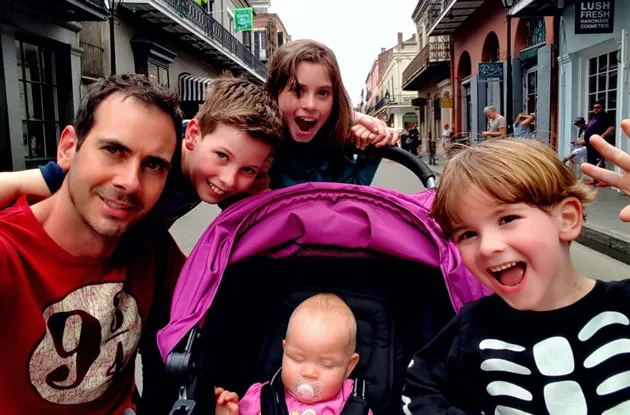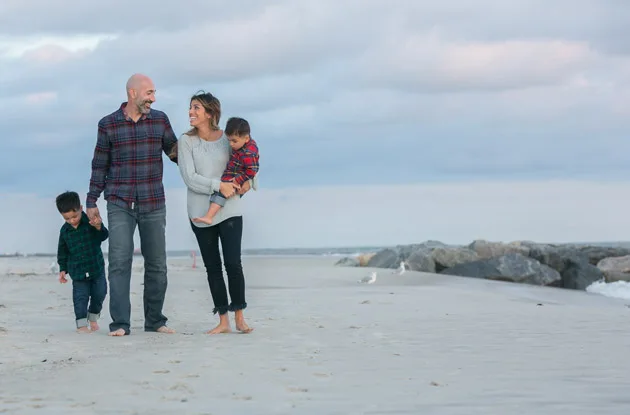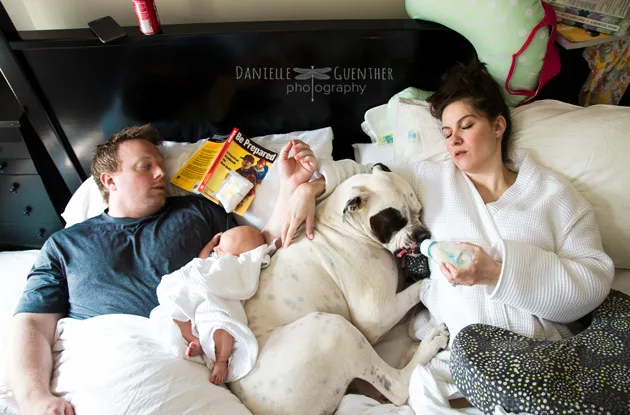
Father’s Day isn’t far off, but a group of fathers I recently met at a film screening has left quite an impression on me, and they—and the film—deserve attention, and recognition, now. Autistic Like Me: A Father’s Perspective, a documentary that grew out of one man’s quest to help fathers who, like him, were having tremendous difficulty coping with a diagnosis of autism for their children, follows the journeys of five fathers with autistic children. Their powerful and personal stories are what draw us into the movie; the outreach campaign of which this screening was a part relate their stories in even more personal ways, and enable the “ALM team” to have an impact and spread a message of support and hope to other fathers in the community.
ALM Outreach Campaign
Using the film as its centerpiece, ALM Outreach is working directly to raise awareness, resources, and support for families and communities affected by autism. Director Charles Jones wants every father in the world with a child on the autism spectrum to know that he is not alone and that there are resources out there to help him. “All he has to do is reach out.”
The short edited version of the film I saw was inspiring, to say the least. (It was a 20-minute cut of a 75-minute film.) The talk-back that followed, however, was even more stirring.
Here is a sampling of topics discussed among the men on stage—a group who readily admitted to not wanting to talk when they first met, but to being overcome by the sense of support and community—the sheer honestly and raw emotion—that connected them once the dialogue opened. They now refer to themselves as a brotherhood, and that sense of communion, mutual respect and love, was evident. As Charles recalled, “It was the first time I’d spoken on that level with anyone in my life.”
On Dealing with Initial Diagnosis, and First Reactions:
“You’re alone with it.”
—Dr. Robert Naseef, clinical psychologist
“I felt like a failure.”
—Jerry
One father described the initial diagnosis as a “relief,” as it leads to answers—and a “passport to services.”
“Life as I knew it had ended. I had worked really hard and I didn’t know what to do.”
—Karl
On the “Male Code”:
“When men are depressed, it comes out as not wanting to talk.”
—John
“In our society, [a man] talking about his vulnerabilities is weak.”
—Charles
“We were all very reluctant to enter into this project—it took a lot of support and pushing…. If you give yourself to the experience and communicate, it can be life-changing.”
—Randy
“I tried every way possible to get out of the retreat weekend before it happened!”
—Jeff
“Don’t call them support groups, because they’ll never show up.”
—Charles
On Growing, Coping, and Learning to Communicate:
“How do I get rid of the guilt?”
—Charles Jones, filmmaker
“It was a process for me to learn how to love my son the way that he is.”
“I’m going to do what it takes to raise my son and make him happy.”
—Karl
“I had to talk about it. It was either that or lose my family.”
—Charles
“What makes you think I’ve made it there yet? Objectively I know my little boy can’t do the things that other little boys do. Subjectively, I forget that.”
—Karl, when asked “What helped you transition to acceptance?”
On Hope, Joy, and Persistence:
“Our kids who are different teach us to be present.”
—Dr. Naseef
“When we actually see [our son Hunter] interacting with his sisters…it gives my wife and me the most joy.”
—Randy
“Triumphs, joyful moments, those little victories…for a child on the spectrum it’s huge.”
—John, describing his child’s first haircut and what keeps him going

The Audience Reaction
A good amount of time was left for the end of the discussion for audience members to ask questions and comment. The room was so inspired and moved that the line snaked up the auditorium to the back, and due to the cost of renting the space, not everyone got to chime in. It was clear from the many who did get an opportunity to speak, though, that the outreach programs are NEEDED, and they WORK. Here are comments from two members of the audience that evening:
“Thank you for teaching me how to be a man…. I can relate to your pain, your pride as a father, even though I don’t have kids with autism.”
“My marriage was a casualty of autism… I went by myself to every IEP meeting. One teacher told me, ‘I thought you were a single parent.’ For years after my divorce I was angry.” Fighting back tears, this woman applauded Charles Jones and the “ALM team” for standing by their sons, and for opening dialogue for other fathers.
What You Can Do
There is only one day left to support ALM’s Outreach Campaign through NYMetroParents’ campaign to help them raise funds. Super Duper Inc. has graciously and generously partnered with us to provide a very cool perk: Anyone who donates $13 to the ALM outreach campaign receives a Super Duper Fun Deck—worth $13 (and there’s no shipping charge!)

Super Duper Fun Decks are engaging, educational card decks, are a perfect learning tool for children, and are particularly helpful for children on the autism spectrum. These Fun Decks contain between 52 and 56, 2 ½ x 3 ½ full-color picture cards (illustrated or photo), content cards, and game ideas all inside of a sturdy metal tin. Super Duper also offers mobile apps for many of these Fun Decks. We give special thanks to them—and hopefully many of you can claim these perks before the deadline is up.
After Tomorrow
Visit Autistic Like Me’s official site to help beyond the NYMetroParents’ campaign end. And be sure to check out Super Duper Inc. for an amazing array of free downloads, helpful advice and tools, and so many toys and fun learning materials that are geared specifically to children with special needs.





















